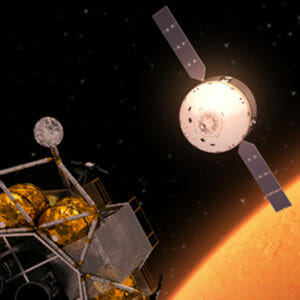
The Interplanetary Initiative at ASU is pleased to announce a call for individual presentations, special sessions, and webinar panel discussions. The Commons in Space conference will bring together scholars and practitioners to address issues of the commons beyond the bounds of our planet. The conference will cover topics including the satellites and space debris increasingly congesting orbital space, mining of celestial bodies, diverse perspectives on space as a global commons, protection of dark night sky, going beyond Antarctica and High Sea regulations as models for space law, and much more.
Organizers welcome different types of contributions. The live events during the conference focus on panel discussions. Those webinar panels are debates related to research and policy and include Q&A with the audience. Webinar panels topics can be submitted directly or will be based on individual talks submitted. Individual contributions are pre-recorded videos. They also invite non-traditional contributions such as interviews, short films, or other artistic works. Submit abstract here.
Key Dates
- Abstract Deadline: Jan 15, 2021
- Acceptance Notification: Jan 25, 2021
- Deadline for prerecorded presentations: Feb 15, 2021
The topic of outer space as global commons received fresh relevance in the April 2020 Executive Order of President Donald J Trump, declaring that outer space should not be viewed as a global commons. What are the implications of this perspective? How will increasing participation of private actors in space exploration impact this dynamic? How do we ensure fair use of the benefits of knowledge and innovations that emerge from space research? How do we solve collective action problems to ensure the long-term sustainability of space exploration activities?
As a virtual conference within a series of conferences organized by the International Association for the Study of the Commons (IASC), the Interplanetary Initiative will facilitate a discussion between space researchers and scholars studying more traditional commons. What can we learn from governing shared resources on Earth to derive fair and productive outcomes for governing shared resources in space? What can commons scholars, working on local and regional scales, learn from space commons that face governance on a scale beyond planet Earth? How can commons scholarship provide models for diverse stakeholder groups to have agency and voice as humanity takes important steps towards sustained human presence on the Moon, Mars and beyond?
Sustainability scientist Marco Janssen chairs the event’s steering committee.